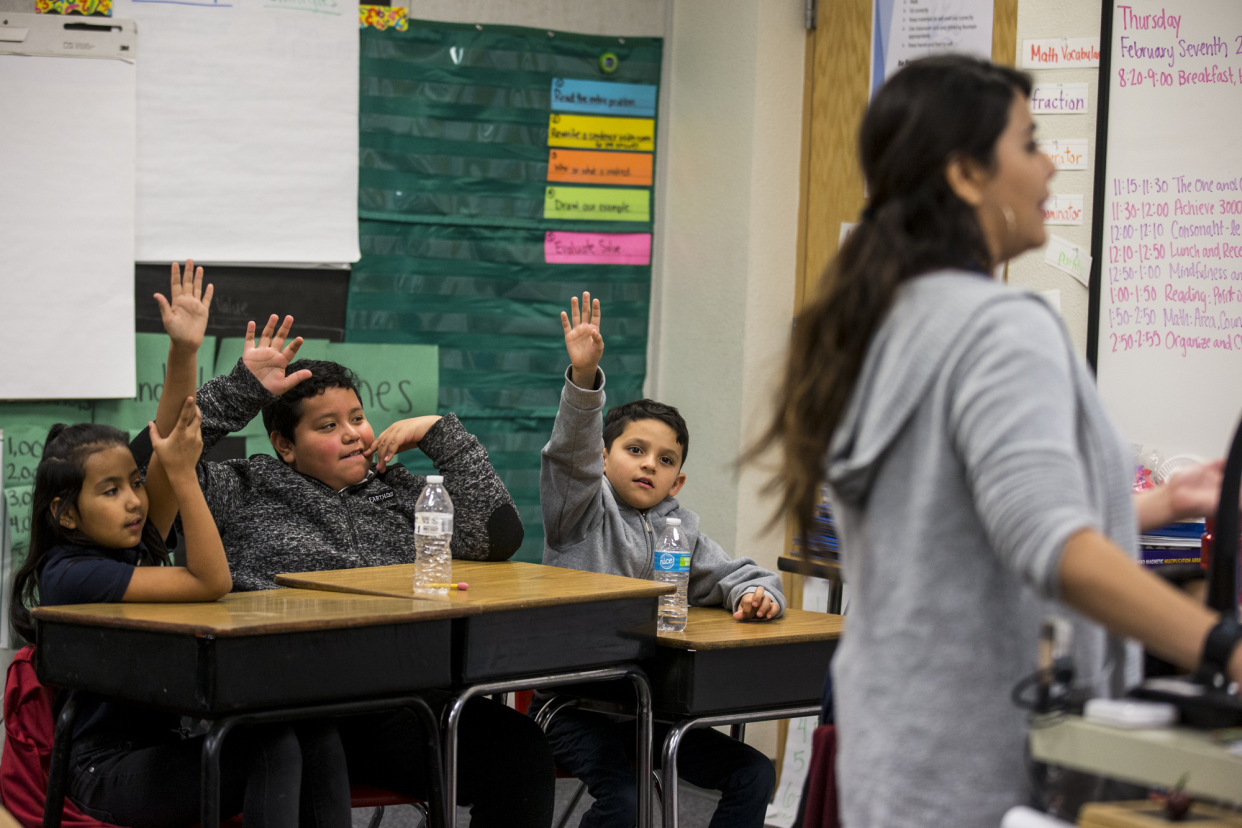Dual language lessons are the inferior (and illegal) way to teach English learners

I am a proud product of the public school system as well as a woman who proudly embraces my Latina heritage and culture.
I grew up in Bisbee, just six miles from the Mexican border in a family where Spanish was spoken, but my mother and father insisted that my siblings and I become proficient in English for us to be able to provide for ourselves as adults.
This was one of their greatest gifts to us because without English language proficiency, none of us would have achieved the level of success available to us in this country.
I obtained my degree from the University of Arizona and have spent my entire adult life as an educator, ensuring English language learners become proficient in English.
I now serve as the chief deputy superintendent of the Department of Education for Tom Horne.
Dual language advocates push an ideology
In 2000, I authored the legislation that became Proposition 203, which required structured English immersion and prohibited dual language until students became proficient in English.
Voters overwhelmingly approved that law because they understood the commonsense notion that students who are immersed in English learn it far more rapidly and effectively than through bilingual education.
But bilingual proponents are nothing if not persistent, taking advantage of an ill-conceived legislative change to the English-language learning models that violates the voter-protected status accorded in Proposition 203.
It is part of an ongoing effort to push their ideology and undermine the will of nearly 1 million voters.
This is further abetted by a recent state attorney general’s opinion that didn’t address whether a dual language program without waivers violates the proposition.
It said that the state Board of Education has the power to adopt models under legislation.
However, neither the Legislature nor the board has the power to overrule a voter-approved initiative. The legislative council found that dual language without a waiver is a violation of the initiative.
English immersion helps students learn
Many immigrant parents today want for their children what my parents wanted: to have their children become proficient in English and be able to choose any profession of their choice.
More to the point, English immersion is highly effective.
Prior to Horne’s first term as superintendent, English-learner students had an abysmal English language proficiency of 4%.
Horne changes test: It's easier for English learners to pass
During his term, which ran 2003 to 2010, EL students attained a 31% proficiency in English, surpassing all educators’ expectations.
The reclassification rate has since dropped to a mere 9% due to a lack of adherence to the law and a lack of teacher training.
English-language students can and do learn if teachers focus solely on the teaching of English.
Speaking English is no sign of intolerance
The Arizona Republic’s Elvia Diaz recently wrote that Superintendent Horne is “intolerant” because he shares my views about the value of Structured English Immersion.
This characterization is unfair. Many Latinos believe bilingual education is nothing less than an artificial barrier to English-language learners.
Diaz argues that parental rights and teacher recommendations support bilingual education.
But weight must be given to the idea that many parents and teacher enthusiastically support immersion — as did the majority of voters who approved Proposition 203 in 2000, many of them Latinos.
Another argument was made that Horne wants to eradicate instruction in any other language than English. He has never said that. He strongly supports learning other languages, as he has done himself.
There is irony that Diaz espoused her views, not in Spanish, but in English. That’s because in the United States, a working knowledge of English is essential.
English is the language of success and commerce, not a mark of intolerance.
It is time for ideologies to be put aside in favor of what is good for our students, particularly, our English language learning students.
Margaret Garcia Dugan is deputy state superintendent of public instruction. Reach her at margaret.dugan@azed.gov.
This article originally appeared on Arizona Republic: Bilingual education is an inferior (and unlawful) way to teach English

